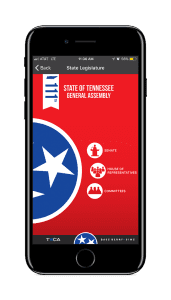Southwest Tennessee Electric Membership Corporation and Aeneas Internet and Telephone Form Partnership to Bring Broadband Internet to West Tennessee
Broadband via gigabit fiber coming soon to Southwest Tennessee Electric’s consumer-members
Brownsville, Tennessee – December 11, 2019 – Southwest Tennessee Electric Membership Corporation and Aeneas Internet and Telephone announce today that they have formed a partnership to build and expand a gigabit fiber network to bring broadband communications to the region. This partnership will pave the way for a multi-year, multi-million-dollar investment into West Tennessee’s future. The new network will eventually expand to provide high-speed internet access to every consumer-member in Southwest Tennessee Electric’s service area.
The network will allow Southwest Tennessee Electric to build one of the most advanced electric distribution systems in Tennessee. The communication network will allow the cooperative to monitor and remotely manage equipment across the utility’s 11-county service area, reducing cost, improving reliability, and increasing operational efficiency.
The gigabit fiber network will also allow Southwest Tennessee Electric and Aeneas to bring broadband internet and telephone services to many unserved areas of southwest Tennessee. Construction’s first phase of nearly 1,000 miles of fiber optic cable will begin in the spring of 2020. Phase one will take approximately one year to complete and will focus on Tipton County and Chester County. Additionally, grant applications have been submitted to serve Hardeman and Haywood counties. Following phases will be launched based on participation and interest. The entire project is expected to take five years to complete.
“We have heard the call from our consumer-members all over the service area who are asking for reliable high-speed internet service,” said Kevin Murphy, president of Southwest Tennessee Electric. “Recognizing that retail broadband service would be a new space for the cooperative, we began looking for a local partner with similar mission and purpose – serving the rural communities of West Tennessee. We found that strategic partnership with Aeneas Internet and Telephone. Aeneas is passionate about local customer service, and that is the culture and purpose that we looked for in a partner.”
“Our common mission is to serve our neighbors,” Murphy said. “That, coupled with their expansive knowledge of the technology required to operate a gigabit fiber network, makes this a perfect fit.”
“What an exciting time for West Tennessee!” said Stephen Thorpe, CEO of Aeneas Internet and Telephone. “For years we have worked with Southwest Tennessee Electric on various projects bringing broadband service to rural communities around West Tennessee. The need for broadband is growing rapidly, and in today’s world we really do rely on it being available to all of us – not just those that live in or around the metro areas. Our founder Jonathan Harlan instilled in us a commitment to the communities we live in and the people we serve – to always have our customers and community our top priority. This is why he believed Southwest Tennessee Electric would be a perfect partner because we share cultures and beliefs. All of us here at Aeneas are excited to partner with Southwest Tennessee Electric to continue with Mr. Harlan’s legacy and help bring this much needed service to even more people in the communities we serve!”
About Southwest Tennessee Electric Membership Corporation
Based in Brownsville, Tennessee, Southwest Tennessee Electric Membership Corporation is a consumer-owned, not-for-profit electric cooperative distributing power to 50,000 meters in parts of 11 West Tennessee counties. The cooperative powers nearly 50 communities of various sizes and maintains more than 4,000 miles of electric distribution lines. With offices in Haywood, Tipton, Madison, and Chester counties; STEMC has been community focused for almost 85 years.
About Aeneas Internet and Telephone
Headquartered in Jackson, Tennessee, Aeneas Internet and Telephone has been named to Entrepreneur magazine’s Hot 500 list of fastest growing businesses in the United States, as well as BusinessTN magazine’s Hot100 and Inc. Magazine’s Inc 5,000. Founded in 1995, Aeneas offers a myriad of services including gigabit fiber broadband, local and long distance, VoIP, office phone systems, commercial web hosting and corporate e-mail, network security, off-site file storage, data center services, managed networking, and more.
If you would like more information about Southwest Electric Membership Corporation, please call Billy Gordon at 731-585-0538, or email [email protected].
If you would like more information about Aeneas Internet and Telephone, please call Stephen Thorpe at 731-554-9200 or email [email protected]




